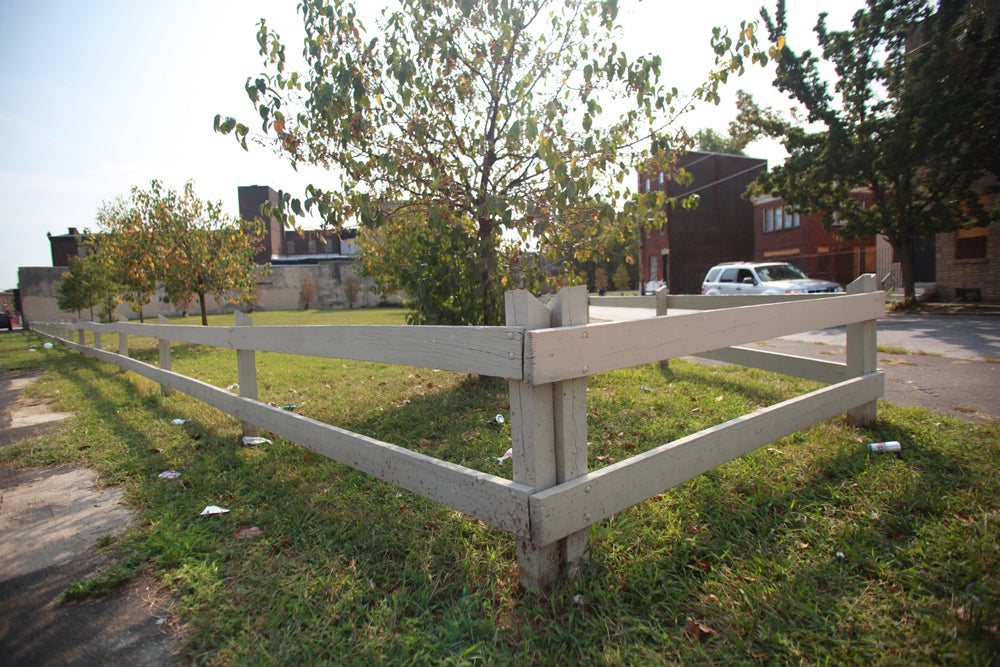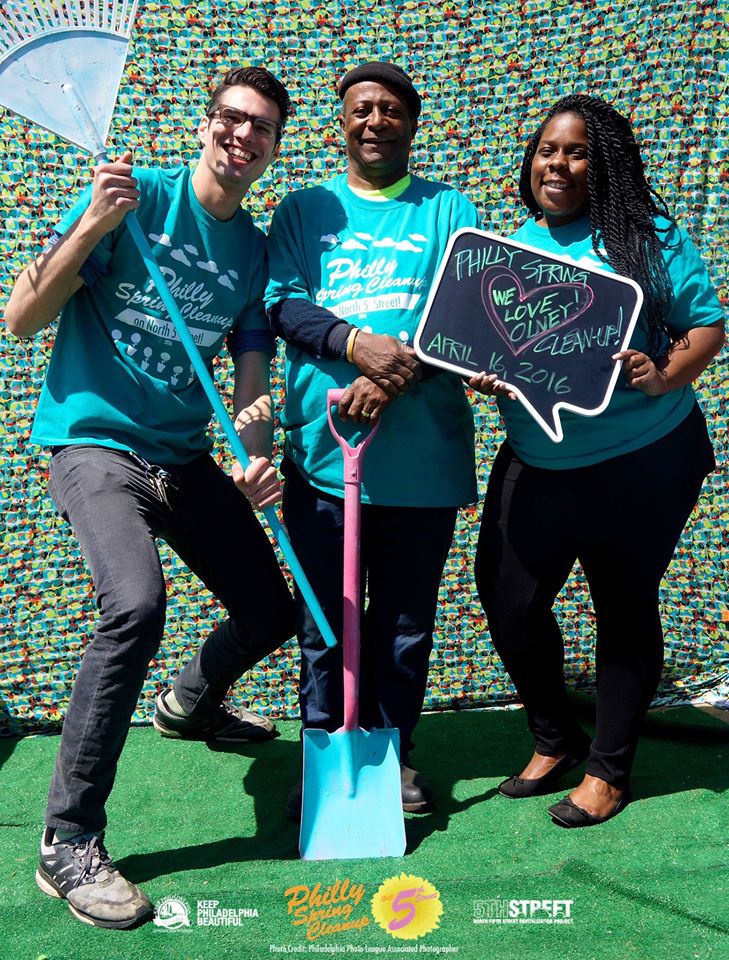What’s at stake if Toomey and Trump cut funding to Philly?

On Wednesday night, Republican Senator Pat Toomey denounced the city of Philadelphia’s sanctuary city policy, which discourages law enforcement from working closely with federal immigration authorities. He then called on president-elect Donald Trump to take immediate action to punish his state’s largest city.
In addition to wishing vague executive action against Philadelphia, Toomey said the Republican-controlled Congress should pass his bill to discipline sanctuary cities by denying them Community Development Block Grants. The program “is very cherished in city governments across America,” Toomey said in his speech and, indeed, in fiscal year 2017 it brought Philadelphia $38.6 million.
For most people who are not policy wonks, Toomey’s threat to deny Philadelphia access Community Development Block Grants (CDBG) may seem abstract.
But for Philip Green, corridor development co-manager for Olney’s North 5th Street Revitalization Project, CDBG means everything. It’s how he paid for the litter removal campaigns last year that cleared away 2,435 bags of trash from the streets of his neighborhood. CDBG money contributed to the 12 storefronts that North 5th Street spruced up last year, in an attempt to enliven the main drag of this mostly immigrant and African-American community. It also paid for Green’s salary.
“I lost sleep over Toomey’s speech last night and I’m still stressed about it today,” Green wrote in a Thursday email to PlanPhilly.
“There are very, very, very few funding sources available to community development nonprofits,” said Green. “To see block grants being cut is to see our entire sector being decimated. It’s the bread and butter all of us rely on.”
The CDBG program is a flexible financial assistance program for economically distressed jurisdictions. In Philadelphia, it supports a diverse array of more than 20 programs, from financial counseling to help families access Earned Income Tax Credits to security deposit assistance for homeless families.

In fiscal year 2017, roughly a fourth of the CDBG funds (more than $10.9 million) go to the city’s Basic Systems Repair Program, which helps low-income homeowners afford repairs. More than $5.1 million goes to housing counseling, including Philadelphia’s nationally renowned foreclosure prevention program, which has kept 10,000 families in their homes since June of 2008.
A quarter of the funding supports economic development initiatives like those that Green’s North 5th Street organization utilizes. For commercial corridor support organizations in neighborhoods like Olney, and for community development corporations more broadly, CDBG are an essential source of support.
“Our communities don’t have the tax base or discretionary income to support business improvement districts,” Green. “Our neighborhoods aren’t super politically connected. This is really the only reliable source of funding organizations like North Fifth Street can count on. It’s heartbreaking to see the federal government turning its back on economic development in low-income communities.”
The federal government began to heavily reduce its commitment to the CDBG program about 15 years ago. In 2001, the City of Philadelphia received $71.7 million from the CDBG program, or $97.8 million in today’s dollars. Today the city’s block grant dropped to less than $39 million, an almost 60 percent decline since the beginning of George W. Bush’s presidency.
Philadelphia tried to concentrate the pain in cuts to the affordable housing programs that CDBG used to back. In 2001, the block grant program funded new affordable housing construction to the tune of $45.5 million in 2016 dollars. Today little remains. In 2016, CDBG only offers $5.6 million for new affordable housing construction here despite the rapidly expanding need.
“We no longer fund affordable homeownership development in Philadelphia, all of it is rental, because the funding was cut,” says Beth McConnell, policy director for the Philadelphia Association of Community Development Corporations, which received $35,000 in CDBG money in fiscal year 2017. “The city had to make tough choices.* There were programs supporting home repair that non-profit organizations did, separate from what the city does, and that was eliminated a few years ago.”
But the cost of the massive reduction in CDBG funds hasn’t only affected affordable housing programs. CDBG pays for about 20 commercial corridor managers like Green across the city, full time professionals with the responsibility of tending to fading mercantile districts in poor and working class neighborhoods. But there are more than 200 commercial corridors in Philadelphia, 60 of which are targeted for improvement by the city as funding becomes available.
CDBG still pops up in all sorts of interesting places, if not as many as it used to. The Pennsylvania Horticultural Society gets well over $700,000 from it to beautify and stabilize vacant lots in the city. The Philadelphia Industrial Development Corporation gets a million dollars to issue business loans in low-income neighborhoods. YouthBuild Philadelphia, which provides job training in the building trades to high school dropouts, gets $300,000, while Neighborhood Advisory Committees get over $1.4 million.
If Senator Toomey gets his way, all of this would vaporize. Such an effort would dovetail with President-Elect Trump’s stated desire to “cancel all federal funding to Sanctuary Cities” on his first day in office.
But some legal scholars say that Toomey’s bill could be unconstitutional. In a law review published this summer, Yale Law School’s Spencer E. Amdur argued that federal grants related to immigration, and perhaps law enforcement as well, could be revoked to punish a sanctuary city for refusing to cooperate with federal immigration detention requests. But Community Development Block Grants have nothing to do with immigration or law enforcement, Amdur argues, so denying CDBG funds to penalize sanctuary cities would amount to an unconstitutional expansion of the federal power over states and municipalities. That principle of federalism was upheld by the Supreme Court most recently in a case limiting the Medicaid rollout portion of Obamacare, and was articulated most forcibly by the late, conservative Justice Antonin Scalia. Other legal scholars have made similar arguments of late.
According to Seth F. Kreimer, professor of constitutional law at the University of Pennsylvania’s Law School, the subject remains unsettled. Much will depend on the Supreme Court, and the question is especially muddled because it is unclear whom Trump will nominate to replace Scalia.
“It is fair to say that Mr. Toomey’s proposed legislation to cut off CDBG funds raises real constitutional questions,” says Kreimer, “It is also fair to say that Mr. Toomey’s proposal that Mr. Trump act unilaterally is even more dubious as a matter of constitutional law.”
But even if these draconian measures do not occur in the next few months, the previous 15 years shows that there will very probably be other threats to the CDBG program.
For Green, the fretting didn’t just begin with Senator Toomey’s speech on Wednesday. As soon as it became clear that Trump would be the victor on November 7, he feared that the program, his neighborhood, his organization, and his job would soon be imperiled.
“My first thought was, ‘what’s going to happen to CDBG funding,” says Green. “It’s not just my personal stakes. This is what it all comes down to: seeing the streets pile up with litter if we are shut down. It is knowing that this minimal investment the federal government makes can be taken away and have a radical impact that affects the trajectory of the neighborhood.”
*Disclosure: Beth McConnell sits on PlanPhilly’s advisory committee.
WHYY is your source for fact-based, in-depth journalism and information. As a nonprofit organization, we rely on financial support from readers like you. Please give today.




